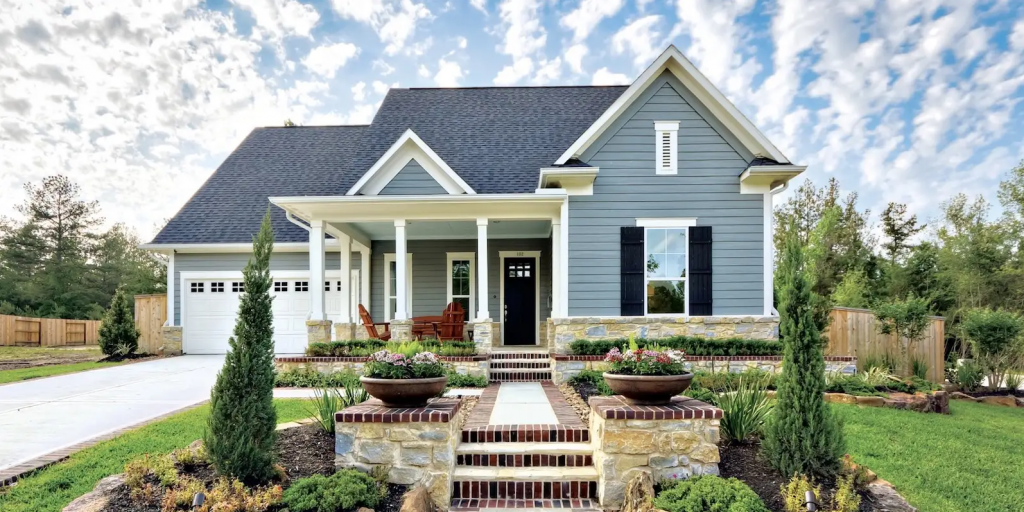
What you require to keep an eye out for in your new rental contract.

Federica

When leasing a lodging abroad, the most essential thing you'll need to do is sign the rental agreement, a vital document that legally holds you and the landlord responsible and likewise protects you.
However, the often-complex terms and legal lingo used in lease contracts can be frustrating. It's also possible that the contract is in a various language when you're renting abroad. This is why it's essential that you never enter into a verbal contract with a proprietor. Take your time to check out and understand precisely what you remain in for.
To assist you out, this post will go into detail about what a rental contract need to contain. This will assist make sure that there're no misunderstandings between you and your property manager. So, let's get going!
What's in a rental contract?
The rental agreement is a legal file that includes important information regarding what the lodging includes, your obligations and rights, and possible charges for late payments, early leave, or damage of residential or commercial property.
A rental agreement might likewise be described as a rental arrangement, occupancy agreement, lease agreement, and so on.
Although rental contracts can rather vary from nation to nation, the majority of will consist of and need similar components:
- Basic information about the renter( s).
- Contact details of the tenant and the proprietor.
- Residential or commercial property description, consisting of address, features, and stock (e.g. furnishings or energies).
- Rental or agreement period.
- Rent information, such as down payment, payment due date, and bank information.
- Your terms, duties, and rights.
- Rules and terms for leasing the rental residential or commercial property.
- Clauses for ending or extending the agreement.
- Dictionary of terms and lingo
Some renters, such as trainees, will likely require a guarantor who'll be legally responsible for payments and penalties on behalf of the renter. Some other optional clauses might include guidelines for having an animal, smoking cigarettes, or running a freelancing business from your home.
Have a look at sample rental contracts in various languages.
Here're some things you should keep an eye out for in your rental contract:
1. Note the kind of rental contract you're signing
There're 2 kinds of rental contracts. If you're going to be remaining for a particular time with a particular end date, you will normally sign a fixed-period contract. If your strategies aren't set in stone, can sign or request for an indefinite contract.
Fixed-period rental arrangements include:
- The end date of the rental agreement.
- No early agreement terminations.
- Penalties if the proprietor concurs to end the agreement early.
Indefinite rental contracts include:
- No end date.
- The agreement may be ended by the property manager if there are legal reasons.
- The time of alert should be noted in your rental agreement - normally in between 1 and 3 months.
2. Ensure all names are included
This may appear like a no-brainer to some, but property owners may notify you that only one name is needed on the lease. However, this can cause all sorts of issues down the roadway.
Having one name on the rental contract means that this person's name will be on the tax slips and energy costs and that they're solely accountable for all payments. Plus, if you have a falling out with one of your roommates or they don't pay on time, you 'd have to pay from your pocket as lawfully, only you'll be responsible.
It's also most likely that you'll get backdated tax slips or the final expenses for utilities after you vacate. Tracking down or holding old roommates accountable after the contract has ended can be difficult. To avoid all this trouble, it's finest if all names are on the lease.
3. Understand the rental payment terms
Payments need to be clearly specified in the rental contract. Always check that the rental agreement provides a comprehensive breakdown of the quantity, specifies when you need to pay lease, and what the repercussions of late payments are.
Some agreements consist of energies, such as water, electrical energy, and internet. Whereas, others may only consist of base rent. In some structures, you might have access to features, such as a fitness center, or might need to pay an annual service cost on top of rent. So if you remain in doubt, clarify these before signing the agreement to know precisely what you're entitled to.
4. Beware and spending plan for extra costs
You can anticipate a number of different costs associated with transferring. When reserving a budget plan, you may need to consist of:
Deposits
Many proprietors will require that 1 or 2 months of lease be paid as a down payment. Don't fret, you'll get this back when you leave, assuming you keep your space or apartment in the exact same condition as you got it in, disallowing general wear and tear.
Agency charges
If you choose to book through a company, you'll have to pay differing costly charges. The booking costs for housing platforms are typically less expensive.
Online platform costs
If you are making use of an online platform, you might require to pay to see listings, contact a number of proprietors beyond the free limit, and for any effective bookings. Generally, the costs will be mentioned in advance so that there aren't any surprises.
To conserve some costs, you could go with an extensive housing platform, like HousingAnywhere, where you're only charged a booking fee which is 25% of the first month's lease.
5. Lease agreement terms
A rental arrangement will consist of information about what can and can not be done to the residential or commercial property. For example, if you're leasing a house and are hoping to hang art or paint the walls, make sure that your rental arrangement allows this or you won't get your down payment back.
Then there are generally other general restrictions, such as no smoking cigarettes or no animals. If you want any of these, make certain to contact the property owner before renting!
6. Take stock of the accommodation
Pay attention to the stock list to understand what comes with your house. Anything not consisted of in the rental agreement is your duty to repair or change, not the property managers.
Don't presume that because something remains in the home, it's included in the lease as sometimes previous tenants might leave furnishings or appliances. To avoid misconceptions, ask your landlord what is or isn't included as big-ticket items like a cleaning maker can trigger a dent in your budget plan!
The biggest tip we can give you is to photograph and take a video of the entire space or apartment or condo that you're renting. As a backup, save the images and videos to the cloud and make sure that a datestamp shows up on the file details.
You ought to also send out a list of any damages you've discovered, consisting of visual proof, to the property owner on the day that you move in. This will ensure the landlord can not unnecessarily charge you for damages when you leave.
7. Restrictions on behaviour
Despite the fact that you will be making the apartment or space your brand-new home, there'll be expectations when it comes to your behaviour. These guidelines are generally defined in the lease contract.
Some examples of rules consist of a no noise policy during particular hours, no animals or smoking within your home, no cooking outside the kitchen area, etc. If not complied with, it can be a cause for eviction.
8. What to get out of your rights and duties
The rental contract must detail everything that is expected of you as a renter, including your responsibilities in the arrangement. However, it must also include your rights as a renter, so that you understand if what you're experiencing is within the premises of your lease contract.
Tenants' rights
- The residential or commercial property must be all set and readily available at the start of the contract.
- Housing should remain in a livable condition.
- The residential or commercial property should be handed over and accepted in individual.
- Landlords should make any required repairs to the home or space.
- Must receive a notice before the property manager enters the residential or commercial property.
- Must be offered a factor to abandon and with sufficient time
Tenants' tasks
- Must pay the agreed rental fees at the needed time.
- Must adhere to all rules.
- Spend for any damages made to the residential or commercial property.
- Give a valid factor and advance alert to leave the residential or commercial property.
9. Rental agreement terms and lingo
Last however not least, here's a useful dictionary of a few of the most common rental terms you'll discover.
Tenant
The occupant is the specific or group of people who will be leasing the residential or commercial property. The agreement ought to include the name of all renters residing on the properties.
Landlord
A proprietor is the private, company or company from which an occupant leases the residential or commercial property. They may also handle the residential or commercial property themselves, or offer an agent who will be the renter's contact for repairs, and so on.
Lettings company
A letting company can be seen as an ambassador in between the proprietor and the renter. They can need costs for helping with paperwork or for keeping the deposit throughout the rental.
Deposit
The deposit is an established quantity of cash that the tenant will offer to the landlord, who will either return the cash or utilize it for any damages made to the residential or commercial property.
Inventory
The inventory will include a list of whatever that is included within the room or apartment or condo.
Premises
A facility can consist of an apartment or condo, a home, a parcel or anything else which can be defined as an area.
Notice period
A notice duration is a period of time that starts after you've informed the property manager, or vice versa, of your last day of the tenancy. This offers the landlord adequate time to discover a new tenant to replace you. Typically, a notification period needs to be one month and requires to be issued before the end of the month.
Termination stipulation
These conditions dictate how the renter can break the lease or end the rental contract early.
Maintenance charges
This charge is an extra charge that the tenant(s) must pay, along with the lease. For instance, if you have a garden, then an upkeep charge to keep the garden in good condition may be required by the renter.
Sublet
Subletting a lodging implies that the original occupant is permitting another tenant to lease the residential or commercial property for a figured out amount of time, with the initial renter accountable for all payments. Additionally, subletting is only enabled with the revealed consent of the proprietor, and it is illegal for the rental price to be higher than the initial quantity set by the landlord.
A lot enters into discovering the right lodging and guaranteeing that the rental agreement includes all of the necessary parts. Just make certain to cover all of the basics, check out all of the small print and you'll have the ability to enjoy your brand-new home in no time at all!








